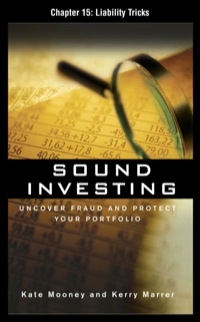






Traditional Costing Systems: The Cooper Pen Company Cooper Pen, is a low-cost producer of blue pens and black pens. Recently, Cooper Pen introduced red and purple pens, using same basic production technology, combined with more complex processes, selling at prices respectively 3% and 10% higher than black and blue. According to cost estimates based on traditional costing, overall profitability for all pens decreased, but red and purple pens recorded higher profit margins than black and blue. Decision: Should Cooper Pen change its product mix so as to de-emphasize blue and black and increase production of new specialty colored pens? Table 1: Profitability by Product (Traditional Costing) Blue Black Red Purple Total Units 50,000 40,000 9,000 1,000 100,000 Price $ 4.50 $ 4.50 $ 4.65 $4.95 Sales $225,000 $180,000 $41,850 $4,950 $451,800 Direct Materials 75,000 60,000 14,040 1,650 150,690 Direct Labor 30,000 24,000 5,400 600 60,000 Indirect Costs 90,000 72,000 16,200 1,800 180,000 Tot. Mfg. Cost 195,000 156,000 35,640 4,050 390,690 Gross Margin GM $ 30,000 $ 24,000 $ 6,210 $ 900 $ 61,110 13.3% 13.3% 14.8% 18.2% 13.5% G.M. % of Sales Activities and Activity Cost Drivers at Cooper's ABC Analysis of the activities identified the following major pen production and support activities performed at Cooper's. This was followed by the selection of the most appropriate cost drivers that drive the costs of these activities. The activities and the activity cost drivers used by Cooper for its ABC were: Table 2: Activities, Activity Cost Pools and Activity Cost Drivers ACTIVITY ACTIVITY COST DRIVER HANDLE PRODUCTION RUNS PRODUCTION RUNS SET UP MACHINES SETUP HOURS SUPPORT PRODUCTS NUMBER OF PRODUCTS RUN MACHINES MACHINE HOURS PROVIDE FRINGE BENEFITS LABOR DOLLARS Activity Cost Drivers Requirements per Product Unit and Total Cost Driver Levels for Each Activity . Based on the identified major activities & and selected cost drivers, Cooper's ABC proceeds as follows: The quantities of cost drivers required for each pen are estimated. The total quantities of each activity cost driver required for the production of planned quantities of all pens are estimated. Costs related to each activity are identified and pooled into activity cost pools. Activity cost driver rates are calculated by dividing the activity cost in each activity cost pool by the total quantity of the respective activity cost driver. Activity cost driver rates are multiplied by the quantity of each activity cost driver 1. Compute the ACDRs in Table 4. Table 4: Activity Cost Pools and Activity Cost Driver Rates (ACDRs) A (Given) B A/B Activities Activity Cost Activity Cost Driver Driver Quantity ACDR Handle Production $66,000 Runs Number of production runs Set up machines $33,600 Number of setup hours Support Products $14,400 Number of products Run Machines $42,000 Number of machine hours $156,000 2. Compute the activity Costs Assigned from Activity Cost Pools to the Cost Objects. 2. Compute the activity Costs Assigned from Activity Cost Pools to the Cost Objects. Table 5: Activity Costs Assigned from Activity Cost Pools to Cost Objects Blue Black Red Purple Total a 4 2.4 5.6 5.6 Handle Production Runs b 70 Set up machines Support Products Run Machines Total Costs Assigned 3. Compute ABC Profitability by product. Table 6: Cooper's ABC Profitability by Product Blue Black Red Purple Total 3. Compute ABC Profitability by product. Table 6: Cooper's ABC Profitability by Product Blue Black Red Purple Total Sales $225,000 $180,000 $41,850 $4,950 $451,800 Material 75,000 60,000 14,040 1,650 150,690 Labor 30,000 24,000 5,400 600 60,000 12,000 9,600 2,160 240 24,000 40% fringe on DL Support Total Mfg. Expenses Gross Margin G.M. % Of Sales 4. Compare Cooper's ABC Profitability Report to Cooper's Traditional Profitability Report. Discuss which Profitability Report is likely to be more accurate. 40% fringe 12,000 9,600 2,160 240 24,000 on DL Support Total Mfg. Expenses Gross Margin G.M. % Of Sales 4. Compare Cooper's ABC Profitability Report to Cooper's Traditional Profitability Report. Discuss which Profitability Report is likely to be more accurate. 5. How can Cooper use its ABC Results to plan for improve performance in production, cost management, marketing, and profitability? 6. If ABC results bring to changes in Cooper's strategies, please design a procedure for estimating the value added of the ABC information to Cooper relative to the additional cost of ABC implementation? Please describe the major cost and value added components. Table 3: Activity Cost Drivers Requirements per Product Unit & Total Cost Driver Levels for Each Activity Activity Cost Driver/unit Blue Black Red Purple Total ** DL hr/unit 0.02 0.02 0.02 0.02 2,000 Mach. hr/unit 0.1 0.1 0.1 0.1 10,000 Prod. runs 70 65 50 15 200 Setup time hr/run 4 2.4 5.6 5.6 Total setup hr 280 156 280 84 800 # of products 1 1 1 1 4 # of Pens 50,000 40,000 9,000 1,000 Case Requirements: Review carefully the text materials on Traditional and ABC Allocations 1. Compute the ACDRs in Table 4. Table 4: Activity Cost Pools and Activity Cost Driver Rates (ACDRs)













